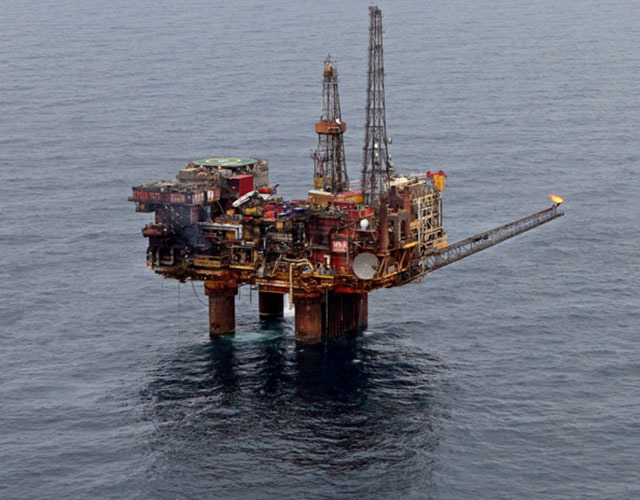
UPDATED 0950 MARCH 15
Methinks the Treasury hath screwed up.
Chancellor Osborne and the UK Treasury may have blown it; the North Sea oil an gas industry wanted and deserved total abolition of the supplementary charge (SCT).
In January I called for North Sea producers to be taxed in the same way as all other business sectors; end of.
Blinded by a lack of vision and weighed down with innate Scrooge-parsimony, all this still incredibly strategic industry gets is apparent abolition of PRT, which should have happened years ago anyway, and a halving of SCT from 20% to 10% when that too should have been abolished.
When in April 2002 Gordon Brown, a Labour predecessor to Osborne at the Treasury, first slapped on SCT, the average Brent spot price for that month was $25.73.
Adjusted for inflation using the Bank of England rule of thumb calculator, that equates to about $37.50 today … a bit more perhaps. As I scribble this, Brent is selling around $40 but of course lifting costs are commensurately higher than 13 years ago.
But in April 2002, UK production was just past peak and generating massive revenues; since when the decline has been steeper than anyone bargained for and revenues have plummeted into the basement.
Osborne claimed the measures announced were worth £1billion, which is now a drop in the ocean for an industry where even one modest project is capable of guzzling multiples of that in capital.
There was no hint of any further Treasury small print measures in the speech such as incentivisation of exploration, though there were helpful behind the scenes adjustments regarding decommissioning and investment in infrastructure. But, as was pointed out to me by a leading oil & gas lawyer, had there been anything further that could be described as meaningful and useful for political point-scoring on the House of Commons floor, then Osborne would have used it in his speech.
There has been a clear case for massive fiscal reform for at least three years and probably five. That has happened in a limited way only, largely through a series of targeted allowances have enabled projects like Culzean operated by Maersk to move ahead. But let’s be nice for a moment; in fairness, this latest set of changes equate to the strongest steps yet taken.
Oil prices are deeply depressed and likely to remain so for many months yet, unless the Organisation of Petroleum Exporting Countries (Opec) manages to cobble an agreement with Russia to limit output. But will Iran play ball? The Americans won’t; indeed cannot.
The viability of North Sea gas is under increasing pressure as it shows signs of coming of age as a globally traded commodity.
The UK Continental Shelf is now a very mature energy province, even though there remain up to 20billion of oil & gas resources to pursue and hopefully produce.
The industry has to shoulder what is a mixed bag of new measures, bearing in mind that it was asking for SCT abolition and some sort of incentive to stimulate exploration which is now at a low ebb.
However, and here’s me being nice again, do bear in mind that the headline rate of Corporation Tax is coming down to just 17% by 2020 and this will presumably impact positively on oil & gas producers that turn a profit.
It will most certainly help the supply chain, which is taxed in line with other UK business streams and perhaps enable those that serve the North Sea to reduce their prices and generally enhance their competitive position on the global stage. That’s very important for Aberdeen.
Recommended for you
